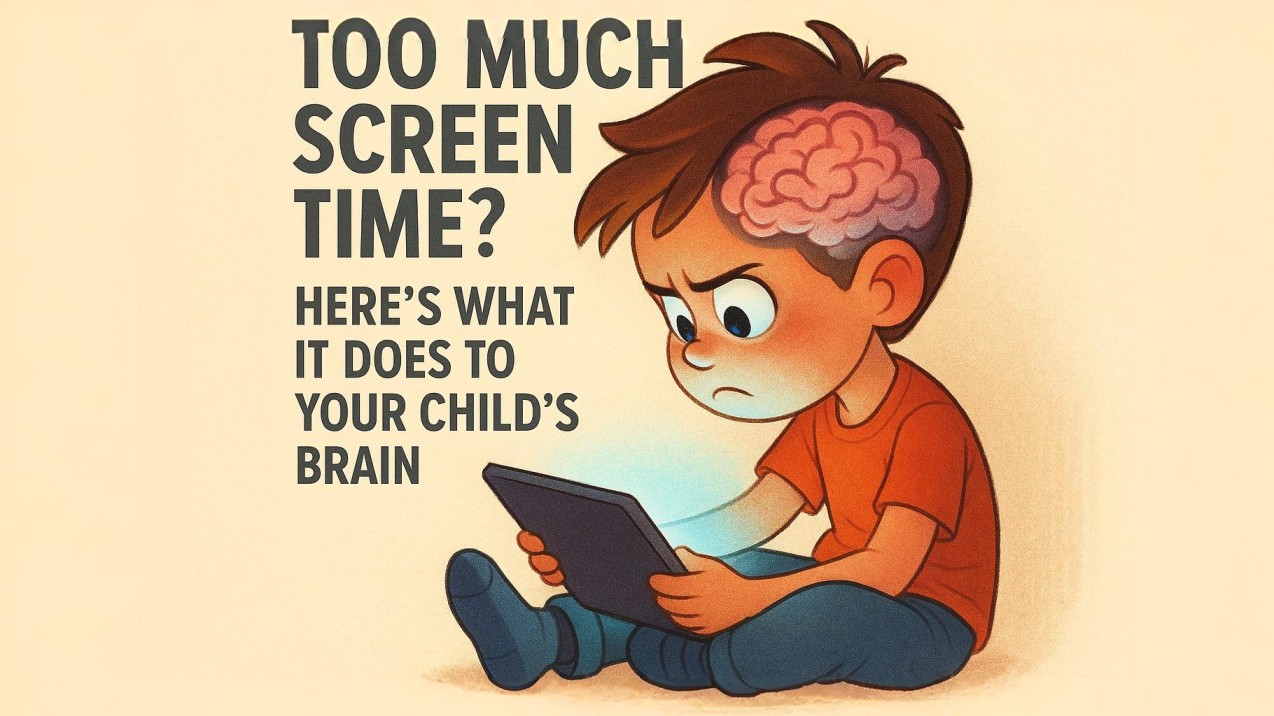Loading advertisement...
27-06-2025

In early childhood, the brain develops rapidly—forming connections that shape memory, learning, behavior, and emotional health. These connections are best built through active engagement, not passive screen watching.
When kids spend too much time on screens, they miss out on essential activities like physical play, social interaction, creative thinking, and sleep—all critical for healthy brain growth.
| 🧠 Brain Function Affected | 📉 Screen Time Impact |
|---|---|
| Attention & Focus | Fast-paced videos and apps can make it hard for kids to concentrate on slower-paced tasks like reading. |
| Language Skills | Less face-to-face talking means weaker vocabulary and delayed speech development. |
| Sleep Patterns | Screens before bed disrupt melatonin and cause sleep problems. |
| Memory & Learning | Passive watching doesn’t engage the brain’s memory systems effectively. |
| Social & Emotional Skills | Children may struggle with empathy, self-regulation, and real-world interactions. |
| Age Group | Recommended Daily Screen Time |
|---|---|
| 0–2 years | No screen time (except video calls) |
| 2–5 years | Up to 1 hour (high-quality, supervised) |
| 6–12 years | Up to 2 hours (excluding homework) |
| 13+ years | Balance with school, sleep, and physical activity |
⚠️ Note: The American Academy of Pediatrics recommends limiting recreational screen time and promoting media-free zones (e.g., bedrooms, meal times).
Difficulty sleeping or irregular sleep patterns
Short attention span or boredom with non-digital play
Tantrums or mood swings when devices are removed
Disinterest in books, outdoor play, or social activities
Eye strain or complaints of headaches
| Tip | Action |
|---|---|
| Set Rules Early | Establish screen time limits and be consistent. |
| Create a Schedule | Use a screen time chart or timer to guide usage. |
| Be a Role Model | Kids mimic adults—limit your own screen habits too. |
| Use Educational Apps | Choose content that promotes learning and creativity. |
| Encourage Offline Fun | Provide toys, books, puzzles, and outdoor time. |
| Talk About Screen Use | Teach kids how to use screens wisely—not just for entertainment. |
| Designate No-Screen Zones | Keep screens out of bedrooms, dining areas, and study spaces. |
Technology is not the enemy—balance is the goal. When screen time is managed thoughtfully, it can support learning and even creativity. However, nothing replaces real-world play, bonding with family, or the magic of exploring nature.
Your child’s brain is building the foundation for their future. Too much screen time may seem harmless, but over time it can limit emotional and cognitive growth.
Being mindful, involved, and proactive can help your child grow up smart, healthy, and connected—to both people and the world around them.
✅ Stay connected with Skool Guru for more educational tips, exam strategies, and academic guidance.
📞 Need help? Contact our mentors today!
Visit: www.skoolguru.in